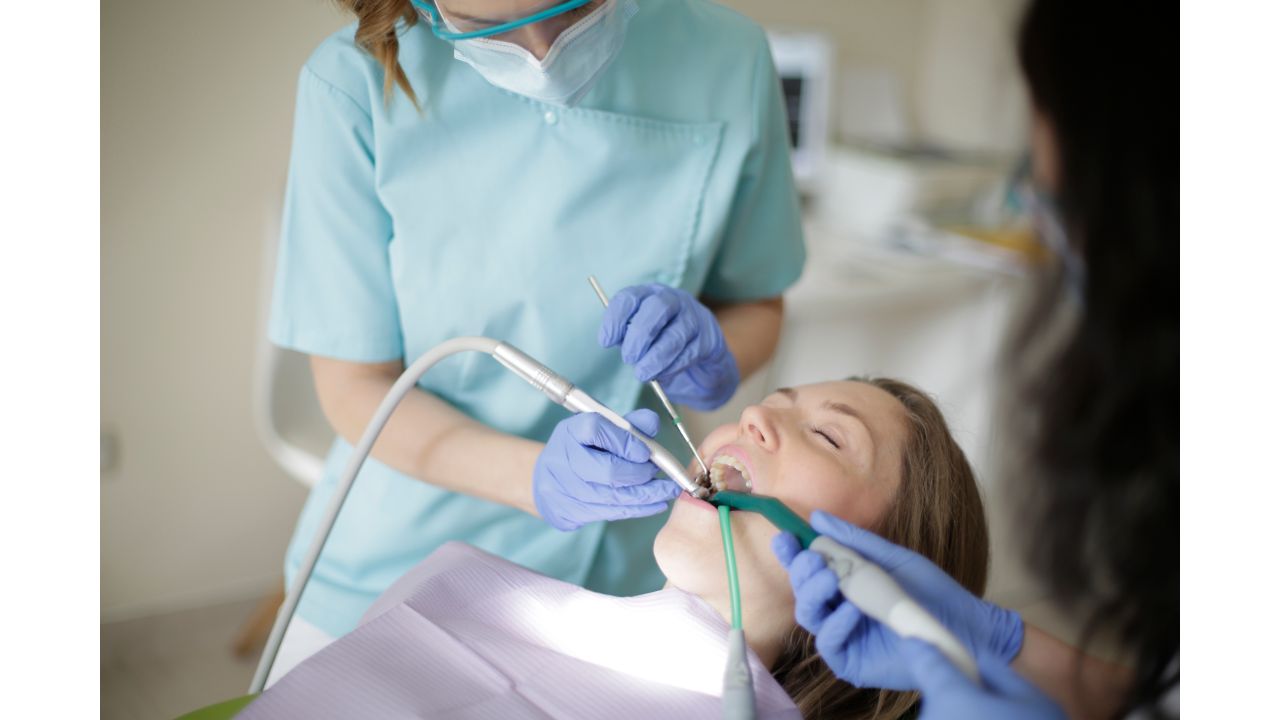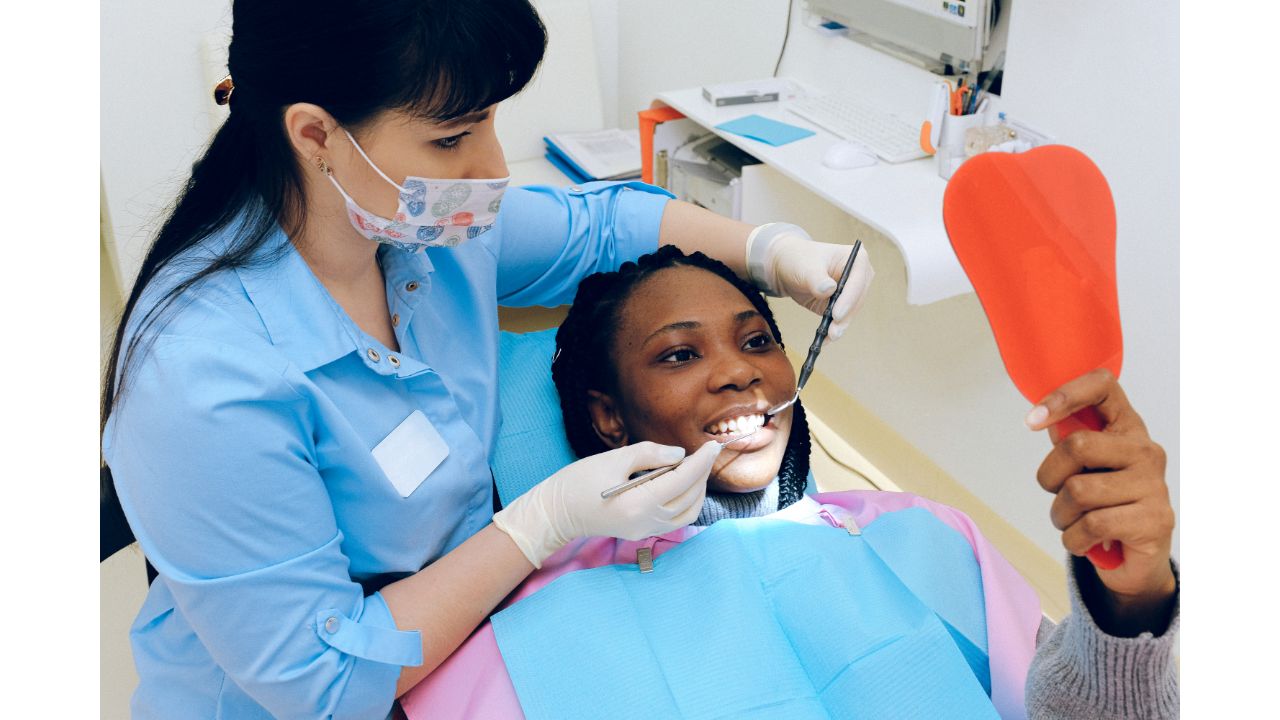A dentist cleaning is recommended every six months for proper oral hygiene and prevention of dental issues. Regular dental cleanings are essential to maintain a healthy smile and minimize the risk of tooth decay, gum disease, and other oral health problems.
By visiting the dentist twice a year, you can ensure that tartar buildup and plaque are effectively removed, and any underlying dental concerns can be detected and addressed early on. Neglecting regular dental cleanings can result in more extensive and expensive treatments in the future.
It is important to prioritize your dental health and schedule regular cleanings to keep your teeth and gums in optimal condition.

Importance Of Regular Dental Cleanings
Regular dental cleanings play a crucial role in maintaining oral health and preventing common dental issues. These cleanings help remove plaque, tartar, and bacteria build-up from the teeth and gums. By eliminating these harmful substances, dental cleanings reduce the risk of cavities, gum disease, and bad breath.
Additionally, during a dental cleaning, the dentist or hygienist can identify any early signs of dental problems and address them promptly. This proactive approach ensures early intervention and prevents the progression of oral health issues. Moreover, regular dental cleanings also contribute to a brighter, whiter smile, as they remove surface stains caused by coffee, tea, and other staining agents.
In conclusion, scheduling regular dental cleanings is vital for a healthy mouth and a confident smile.
Frequency Of Dental Cleanings
Determining the frequency of dental cleanings is crucial in maintaining oral health. Factors to consider include individual needs, such as oral hygiene habits, existing oral health conditions, and risk factors for dental problems. Age, overall health, and susceptibility to gum disease or tooth decay are also important.
Additionally, it is essential to consult with a dentist who can assess the individual's oral health and provide personalized recommendations. Regular dental cleanings can prevent plaque buildup, tartar formation, and gum disease. They also allow the dentist to detect early signs of oral health issues and provide necessary treatments.
While the general recommendation is to have a dental cleaning every six months, some individuals may require more frequent cleanings based on their oral health needs. Remember, maintaining proper oral hygiene and following the dentist's recommendations can lead to a healthier smile.
Signs That Indicate A Need For Dental Cleaning
Dental cleanings are essential for maintaining oral health and preventing potential problems. Neglecting regular cleanings can lead to various issues such as plaque buildup, gum disease, and bad breath. By paying attention to common signs, you can identify when it's time for a dental cleaning.
If you notice persistent bad breath or a foul taste in your mouth, it may indicate the presence of bacteria and plaque that need to be removed. Additionally, if you experience bleeding or swollen gums, it could be a sign of gum disease, which can be addressed during a dental cleaning.
Another sign is the presence of yellow or stained teeth, which can be effectively treated with a thorough cleaning. Remember, dental cleanings are not only about maintaining a beautiful smile but also taking care of your overall oral health.
Benefits Of Regular Dental Cleanings
Regular dental cleanings play a crucial role in maintaining optimal oral health. Through the thorough removal of plaque and tartar buildup, the risk of gum disease, cavities, and other oral health problems is significantly reduced. These cleanings, typically recommended every six months, ensure that hard-to-reach areas are thoroughly cleaned.
By doing so, the dentist can identify any potential issues early on and prevent them from progressing into more serious conditions. With professional cleanings, your teeth are left feeling fresh and smooth, contributing to a brighter smile and improved overall oral hygiene.
Don't underestimate the importance of regular dental cleanings in keeping your teeth and gums healthy. Schedule your next cleaning with your dentist to reap the benefits of this preventive measure.
The Dental Cleaning Process
Regular dental cleanings are essential for maintaining good oral health and preventing dental problems. During a dental cleaning, the dental professional uses various tools and techniques to remove plaque, tartar, and stains from the teeth. They start by examining your mouth and checking for any signs of gum disease or other issues.
Next, they use a scaler to remove plaque and tartar buildup from the teeth and along the gumline. After this, they use a high-powered brush and gritty toothpaste to polish the teeth and remove surface stains. Finally, they floss your teeth to remove any remaining debris and give your mouth a thorough rinse.
This process helps to keep your teeth clean, your gums healthy, and your smile bright. It is recommended to have a dental cleaning every six months to keep your oral health in check.
Professional Dental Cleaning Vs. At-Home Oral Hygiene
Professional dental cleaning is essential for maintaining optimal oral health and preventing oral diseases. Regular dental cleanings, in conjunction with at-home oral hygiene routines, offer significant advantages. These cleanings help remove plaque and tartar buildup, which can lead to tooth decay and gum disease.
By visiting a dentist regularly, you can detect and address dental issues in their early stages. Professional cleanings also involve a thorough examination of the oral cavity, including the gums, teeth, and tongue. This allows for the identification of any abnormalities or potential problems.
Furthermore, dental cleanings provide an opportunity for dentists to offer personalized oral hygiene advice and recommendations. Complementing your at-home routine with professional dental cleanings ensures comprehensive dental care and promotes excellent oral health. Remember, prevention is always better than treatment when it comes to dental issues.
Maintaining Optimal Oral Hygiene Between Dental Cleanings
Maintaining optimal oral hygiene between dental cleanings is crucial for preventing oral health issues. Regular home care is essential. Brush your teeth at least twice a day, for two minutes each time. Floss daily to remove plaque and food particles from between your teeth.
Use mouthwash to kill bacteria and freshen your breath. Avoid sugary foods and drinks that can damage your teeth. Schedule regular dental check-ups to address any potential problems early. By following these effective oral hygiene practices, you can keep your teeth and gums healthy and prevent the need for frequent dentist cleanings.
Taking these additional measures will help you maintain optimal oral health, saving you time and money in the long run.
Common Oral Health Issues And How Dental Cleanings Help
Regular dental cleanings can effectively prevent and address a range of oral health issues. These cleanings play a crucial role in maintaining oral hygiene and preventing dental problems. By removing plaque and tartar buildup, cleanings help prevent tooth decay and cavities.
They also remove surface stains, leaving you with a brighter smile. Dental cleanings can also help prevent gum disease by eliminating bacteria and reducing inflammation. Moreover, regular cleanings allow dentists to identify and address any potential issues early on, such as early signs of oral cancer or jaw problems.
By scheduling dental cleanings every six months, you can stay on top of your oral health and minimize the risk of more serious dental problems.
Dental Cleaning Costs And Insurance Coverage
Dental cleaning costs and insurance coverage are essential considerations for individuals looking to evaluate the affordability of this procedure. Evaluating the potential insurance coverage can help determine the out-of-pocket expenses. Fortunately, there are affordable options available for those without dental insurance.
It is important to explore different providers and clinics to find cost-effective solutions. By doing thorough research and comparing prices, individuals can find suitable options for their dental cleaning needs. It is recommended to take advantage of any available discounts or dental savings plans to further reduce expenses.
Regular dental cleanings are vital for maintaining oral health, and understanding the cost and insurance coverage can help make informed decisions about scheduling these appointments.
Faqs: How Often Should You Schedule Dental Cleanings?
Faqs: how often should you schedule dental cleanings? Dental cleanings play a vital role in maintaining optimal oral hygiene. Regular cleanings help prevent tooth decay and gum disease, ensuring a healthy smile. Ideally, it is recommended to schedule dental cleanings every six months, but this can vary based on individual needs.
Your dentist may suggest more frequent cleanings if you have existing dental issues or a high risk of oral problems. Factors such as age, oral hygiene habits, and overall dental health also influence the frequency of cleanings. It's important to consult with your dentist to determine the appropriate schedule for your dental cleanings.
Remember, prevention is better than treatment when it comes to oral health, so don't skip those regular dental cleanings!
Frequently Asked Questions Of How Often Dentist Cleaning
How Often Should You Get A Dentist Cleaning?
It is recommended to get a dentist cleaning at least twice a year to maintain good oral health.
Why Is Getting A Dentist Cleaning Important?
Regular dentist cleanings help remove plaque, prevent gum disease, and keep your teeth strong and healthy.
What Happens During A Dentist Cleaning?
During a dentist cleaning, plaque and tartar are removed, teeth are polished, and a dentist will examine your oral health.
Does A Dentist Cleaning Hurt?
Dentist cleanings are generally painless, although some people may experience slight discomfort or sensitivity.
How Long Does A Dentist Cleaning Appointment Last?
A typical dentist cleaning appointment lasts about 30 minutes to 1 hour, depending on the individual's oral health.
Conclusion
Regular dentist cleanings are essential to maintaining good oral health. By getting your teeth cleaned at least twice a year, you can prevent the buildup of plaque and tartar, which can lead to tooth decay and gum disease. Not only do cleanings help keep your teeth looking bright and white, but they also allow your dentist to detect any potential issues early on, such as cavities or signs of oral cancer.
Additionally, regular cleanings give your dentist the opportunity to evaluate your overall oral health and provide personalized advice for improving your at-home oral hygiene routine. Taking care of your teeth and gums with regular cleanings will not only save you from uncomfortable and costly dental procedures in the future but will also contribute to your overall well-being.
So, don't skip your dental cleaning appointments and make them a priority for a healthy and confident smile.

